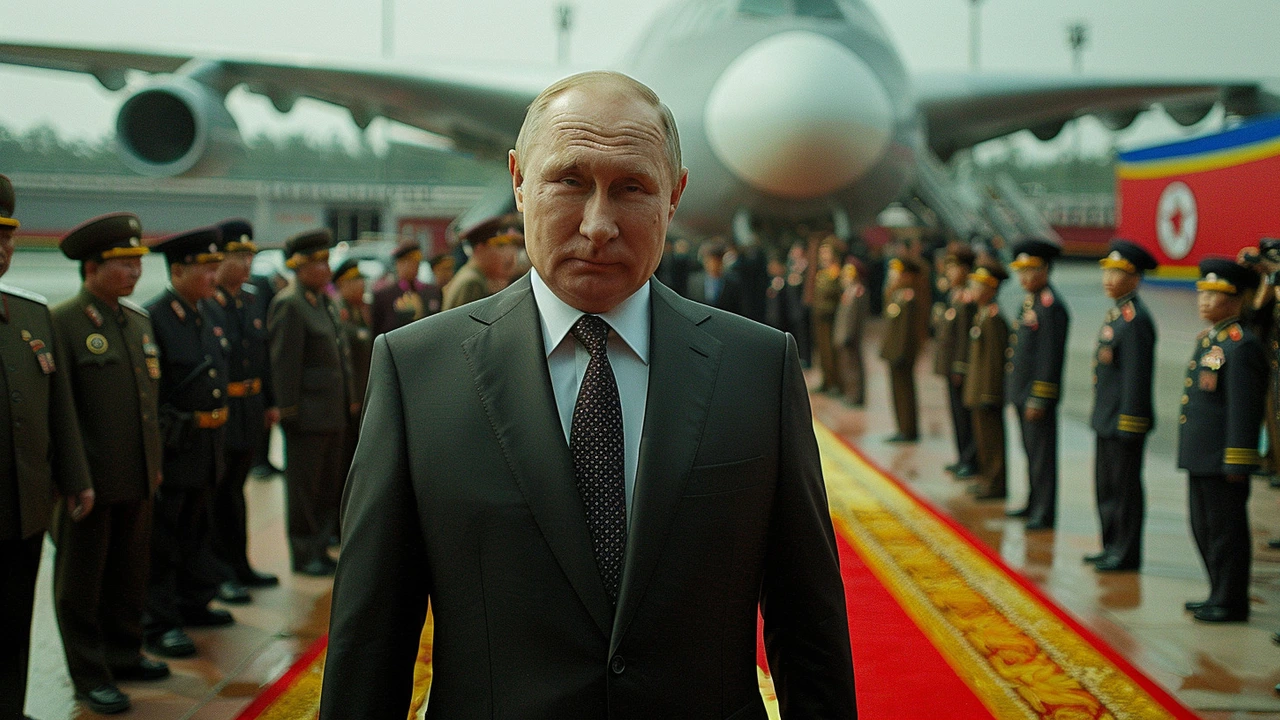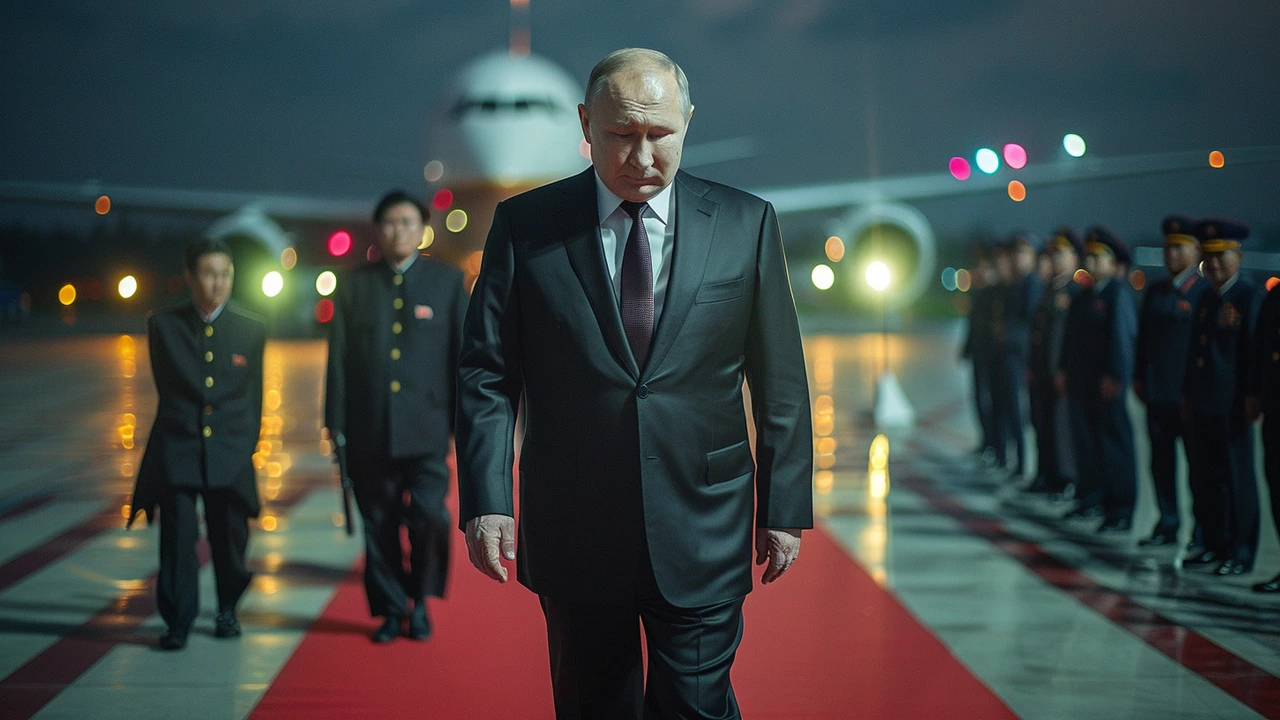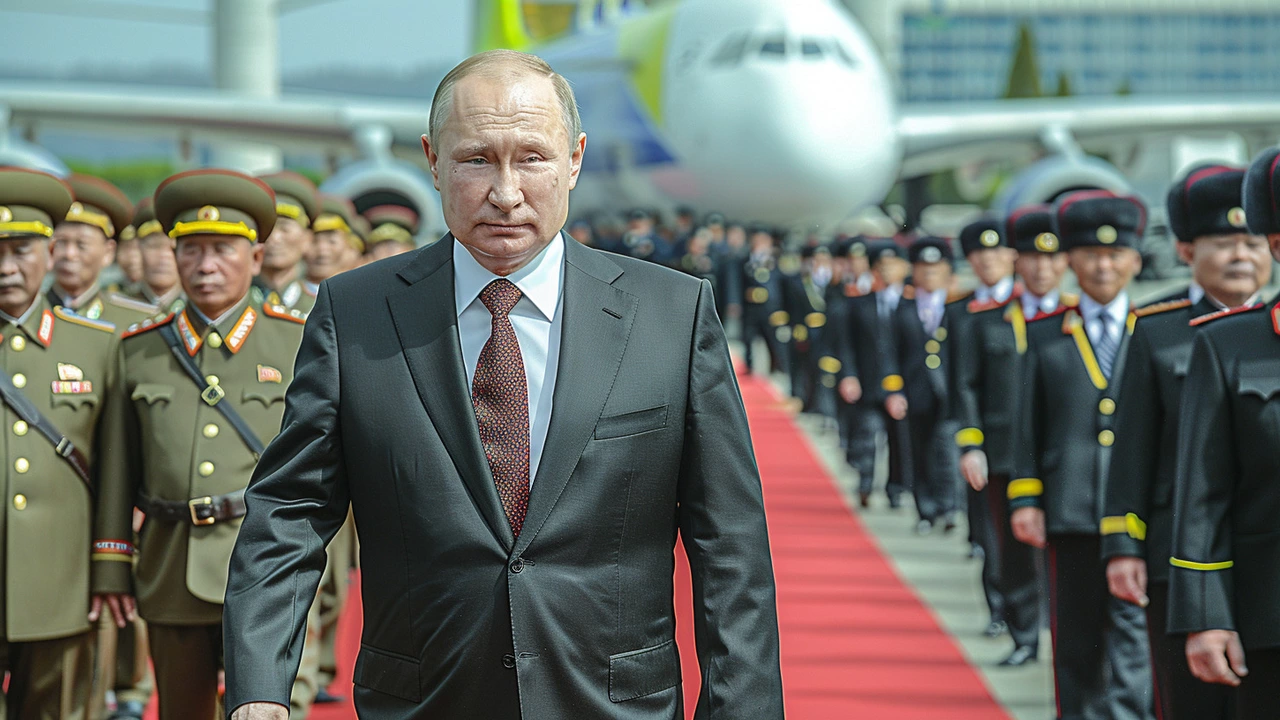Putin's Historic Visit to North Korea
In an event filled with symbolic gestures and grand ceremonies, Russian President Vladimir Putin's historic visit to North Korea has captured global attention. This journey marked his first visit to the secretive state in 24 years, reflecting a notable strengthening of ties between Moscow and Pyongyang.
As Putin's aircraft landed at Pyongyang's international airport, a line of North Korean officials and a welcome ceremony were already in place. North Korean leader Kim Jong Un personally greeted Putin, setting the stage for what would be a highly publicized and orchestrated visit, illustrating their burgeoning camaraderie.
A large, enthusiastic crowd lined the streets, waving Russian and North Korean flags, a display of unity that couldn't be mistaken. Russian flags intermingled with bouquets of flowers, given by children clapping and celebrating on the streets. An extravagant ceremony took place at Kim Il Sung Square, featuring soldiers on horseback and military formations. It encapsulated the gravity of the visit, serving as a visual testament to the two nations' solidarity.
The Warm Reception: A Reflection of Mutual Respect
The visit extended beyond mere gestures of welcome. It represented a significant alignment of ideologies and policies between the two countries. Kim Jong Un and Vladimir Putin exchanged heartfelt greetings, sharing deep discussions on how to further strengthen their nations' bonds. This dialogue hints at the developing strategic partnership that includes mutual support in political, economic, cultural, and security spheres.
The leaders paid heed to the palpable international concerns arising from their evolving military cooperation. Pyongyang has faced allegations of providing arms to support Russia's military campaign in Ukraine. Despite the denials from both Moscow and Pyongyang, substantial evidence suggests considerable military transactions between the two. The alignment isn't solely military; it embodies a shared resistive stance against Western policies and sanctions.

A Controversial Alliance Amid Global Scrutiny
Highlighting mutual support and solidarity, Kim voiced his unwavering backing for Russia's efforts to safeguard its sovereignty and territorial integrity amid the ongoing conflict in Ukraine. Putin too reciprocated, describing their relationship as one grounded in 'equality and mutual respect.' Their declarations culminated in a comprehensive partnership agreement, tagged by Putin as a 'breakthrough document.'
This agreement promises mutual assistance in case either nation faces aggression, a notable addition to their security and military links. Beyond defense, the pact extends to political governance, trade relations, cultural exchanges, and economic investments, marking a multidimensional alliance. This substantial agreement signals a robust future partnership, intending to redefine the geopolitical balance in response to Western blocades.
A Strategic Boost for Kim Jong Un
For Kim, the visit serves as a significant diplomatic victory. Largely ostracized on the global stage due to his stance on nuclear arms, hosting another major world leader in Pyongyang is a substantial morale and strategic boost. It highlights his broadening diplomatic arsenal post-pandemic, as Russia emerges as a crucial ally willing to defy international norms.
Meanwhile, reports indicate North Korea sent over 10,000 shipping containers, approximately 260,000 metric tons of munitions or related materials, to Russia since September. This alliance isn't limited to material supplies; military actions reveal the launch of at least 10 North Korean missiles in Ukraine. This exchange potentates Pyongyang's influential role in aiding Russia’s ongoing military engagements against Ukraine.

Global Concerns and Regional Reactions
The burgeoning Russo-North Korean alliance is igniting concerns across multiple capitals, including Seoul and Washington. Fears are mounting over potential transfers of advanced Russian military technology to North Korea, potentially enabling Pyongyang to accelerate its controversial weapons programs. These developments have triggered diplomatic recalibrations among neighboring nations and unaligned powers.
The visit's backstory dwells on Kim Jong Un’s trip to Russia last year, which, many believe, heralded the current strengthening of ties. This bilateral engagement stemmed from Russia’s strategic need for North Korean military aid to support its offensive operations in Ukraine. Their interactions eschew traditionally limited diplomacy for collaborative advancements, hinting at broader implications for regional and global geopolitics.
Summing Up the Historic Engagement
To the global observer, the alliance between Russia and North Korea signals a larger alignment against Western policies. This developing coalition not only repositions North Korea from isolation but also fortifies Russia’s front. As the world keeps a close watch on this evolving partnership, it's clear that Putin's grand welcome in Pyongyang marks the start of a highly dynamic chapter in international relations, one that bears watching closely.
